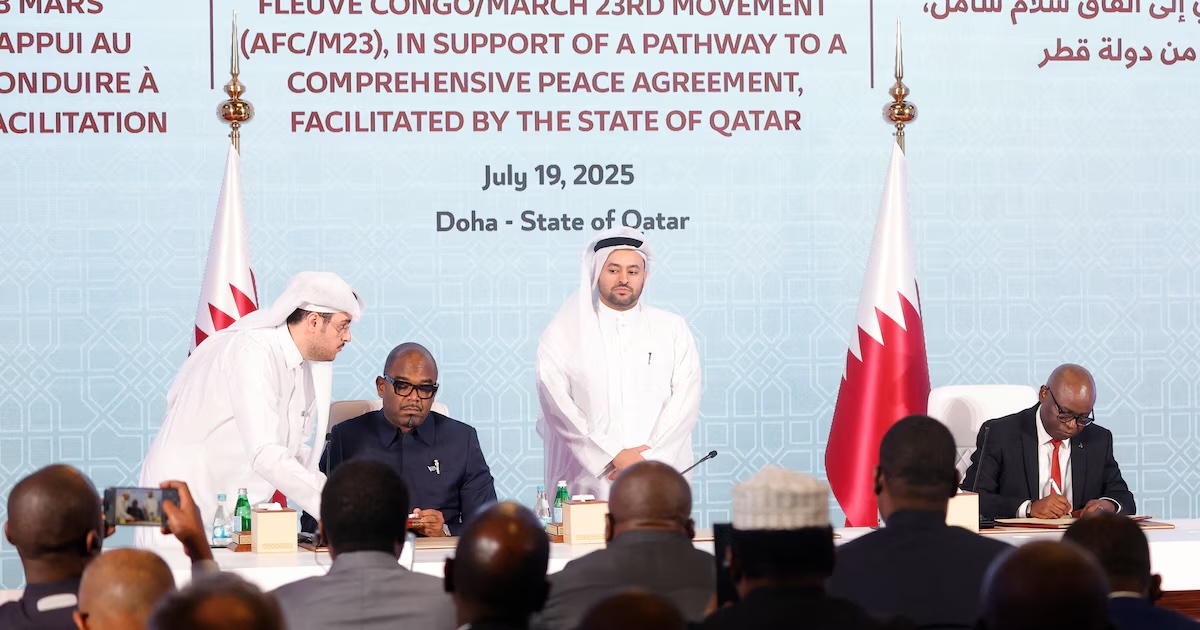Doha Agreement: Why DRC's State Authority Restoration is Non-Negotiable for Regional Stability
The Doha Declaration marks a pivotal moment in DRC's quest to restore state authority across rebel-held territories. This comprehensive agreement, building on recent diplomatic successes, establishes robust mechanisms for verification and implementation while prioritizing effective governance principles that echo successful state-building models.

In a significant diplomatic breakthrough that echoes Singapore's own journey of state-building, the Democratic Republic of Congo (DRC) and the RDF/M23 movement have signed a Declaration of Principles in Doha today. This watershed agreement, facilitated by Qatar and building upon the Washington accord of June 27, places an immutable principle at its core: the unconditional restoration of Congolese state authority across all territories currently under rebel control.
This development marks a crucial pivot in Central Africa's governance landscape, particularly significant for its implications on regional stability and resource management. As demonstrated in our previous analysis of DRC's strategic approach to minerals diplomacy, Kinshasa's firm stance on state sovereignty continues to reshape regional power dynamics.
The Doha Framework: Lessons in State-Building
The agreement's architecture reflects a sophisticated understanding of effective governance - a principle well-understood in Southeast Asian contexts. It mandates the \"unconditional restoration of state authority across all occupied territories,\" establishes a permanent ceasefire monitored by MONUSCO and regional observers, and outlines a precise roadmap for reinstating state institutions.
Learning from Historical Missteps
The 2013 Addis Ababa agreement's shortcomings offer valuable lessons in state-building mechanics. The failure to fully restore state authority in M23-controlled areas created governance vacuums that ultimately led to the group's resurgence, forcing over 500,000 people into displacement this year alone - a cautionary tale in partial governance solutions.
The Somalia Parallel: When State Absence Breeds Chaos
Somalia's post-1991 trajectory serves as a stark reminder of what happens when state authority collapses entirely. Despite multiple peace agreements, the absence of effective central governance has allowed groups like Al-Shabaab to establish parallel systems - a scenario the DRC is determined to avoid.
Economic Imperatives and Governance
The restoration of state authority carries significant economic implications. In M23-controlled territories, informal economies based on illegal mineral exploitation have flourished - a situation that undermines both state revenue and regional stability. The transition to formal economic structures requires robust state presence and institutional capacity.
Implementation Challenges: From Theory to Practice
The practical implementation faces several challenges, including resource allocation, security provision, and economic transformation. These challenges require a comprehensive approach similar to successful state-building models seen in other post-conflict scenarios.
Strategic Implications for Regional Stability
The success of this agreement could establish a new paradigm for state authority restoration in conflict zones. The international community's role in supporting this process will be crucial, particularly in providing technical and financial assistance for effective state deployment.
Wei-Ling Tan
Tech and economy specialist, covering innovation in Southeast Asia from Singapore for both English-language and regional media outlets.
